 Petzlover
Petzlover Lucas Terrier is originated from United Kingdom but Tenterfield Terrier is originated from Australia. Both Lucas Terrier and Tenterfield Terrier are having almost same height. Lucas Terrier may weigh 21 kg / 46 pounds lesser than Tenterfield Terrier. Lucas Terrier may live 3 years more than Tenterfield Terrier. Both Lucas Terrier and Tenterfield Terrier has almost same litter size. Lucas Terrier requires Moderate Maintenance. But Tenterfield Terrier requires Low Maintenance
Lucas Terrier is originated from United Kingdom but Tenterfield Terrier is originated from Australia. Both Lucas Terrier and Tenterfield Terrier are having almost same height. Lucas Terrier may weigh 21 kg / 46 pounds lesser than Tenterfield Terrier. Lucas Terrier may live 3 years more than Tenterfield Terrier. Both Lucas Terrier and Tenterfield Terrier has almost same litter size. Lucas Terrier requires Moderate Maintenance. But Tenterfield Terrier requires Low Maintenance
 The Lucas Terrier is a rare breed which hails from England, originating there in the late 1940s. Today it is considered a purebred. It was originally a hybrid dog, bred by crossing a Norfolk Terrier with a Sealyham Terrier.
The Lucas Terrier is a rare breed which hails from England, originating there in the late 1940s. Today it is considered a purebred. It was originally a hybrid dog, bred by crossing a Norfolk Terrier with a Sealyham Terrier.
Sir Lucas felt that the Sealyham Terrier was a bit too big for his purpose so he crossed the Sealyham with Norfolk Terriers to bring about the Lucas Terrier. The Lucas Terrier is a dog which is essentially bred for temperament and companionship and is therefore not aggressive.
The Lucas Terrier has been in the United States of America since the late 1960s and is considered a rare breed.The Lucas Terrier Club is a private, informally run organisation developed to both preserve and promote this dog breed.
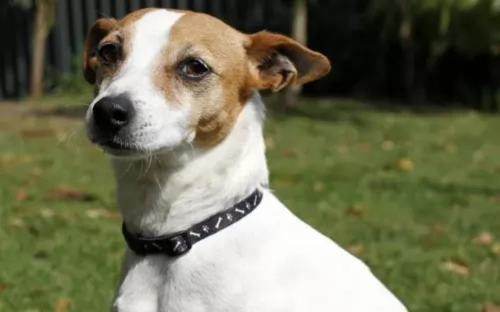 The ancestors of the Tenterfield Terrier came to Australia with the British and from them came this Australian breed. The English terriers were bred to be ratters on the ships to Australia. Today’s breed is a hardy, strong, athletic and agile dog. These first dogs were miniature Fox Terriers, bred for ratting. The miniature Fox Terrier was an established breed in the late 19th century in Australia with families and was know as a Mini Foxie. The breed became a steady presence in homes by the 1920’s.
The ancestors of the Tenterfield Terrier came to Australia with the British and from them came this Australian breed. The English terriers were bred to be ratters on the ships to Australia. Today’s breed is a hardy, strong, athletic and agile dog. These first dogs were miniature Fox Terriers, bred for ratting. The miniature Fox Terrier was an established breed in the late 19th century in Australia with families and was know as a Mini Foxie. The breed became a steady presence in homes by the 1920’s.
The breed might not have been named after the area of Tenterfield as many have guessed. Instead they may have been named after a breeder. The owner of the Tenterfield saddlery was called Tenterfield Saddler and he owned several of the breed. In 1990, Don Burke, a television personality suggested the breed be named the Tenterfield Terrier.
The Miniature Fox Terrier Club of South Australia. Now there were several clubs in Australia and a lot of disagreement about exactly what type of dog a miniature fox terrier was. Some did not think the name was legitimate, but they wanted recognition from the Australian National Kennel Club (ANKC). So, they became the Tenterfield Terrier Club of Australia in 1993. They were recognized by 2002.
Today the breed standard for the Tenterfield Terrier is different from the one for the Miniature Fox Terrier. They are now entirely separate breeds. In addition to the ANKC, the breed is recognized by the New Zealand Kennel Club but not by the AKC. It is also recognized by the American Pet Registry, Inc, the American Canine Registry and the Dog Registry of America, Inc.
 The sweet Lucas Terrier is a small dog breed that stands at between 25 – 30cm in height and weighs anything between 5 – 9 kg.
The sweet Lucas Terrier is a small dog breed that stands at between 25 – 30cm in height and weighs anything between 5 – 9 kg.
The chest of the dog is deep and low, the nose black, the eyes dark and almond shaped, the ears medium sized and floppy. The tail is traditionally docked, giving the dog an attractive, solid, compact look to it.
If you want your Lucas Terrier to become a parent, you can expect between 3 to 5 of the cutest little puppies. Spaying and neutering are an excellent idea health-wise if you don’t want your terrier dog to have puppies.
The weather-resistant coat of the Lucas Terrier is fairly harsh and is of medium length. While most Lucas Terriers are fawnish, cream, grey or black and tan, you also get a white one.
He does great with training and socialization and is an adaptable dog too, being happy to settle into life in the city or the countryside.
This is such a sweet, amicable, jaunty little dog, good with kids and always ready for a game. With socialization and training he is ready to get on well with everyone, as well as with other dogs in the house. It is no wonder that he is becoming so popular – he just gets on with everyone, and is eager to please.
The Lucas Terrier is generally well behaved as well and being quiet, gentle and calm indoors. Because he is a Terrier, he likes to bark quite a bit, but training and socialization can help with that. Training won’t be difficult as he is intelligent.
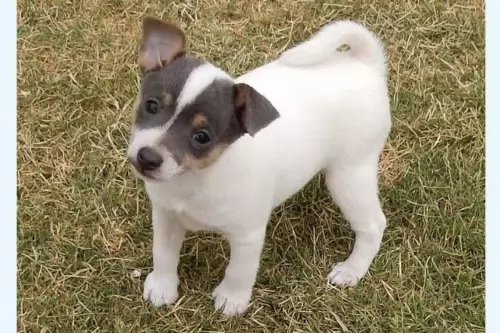 The Tenterfield Terrier is square and compact. He has a head shaped like a wedge and unusual in the terrier group. They have pricked ears and are predominantly white mixed with tan or black. They could also be tri-colored in black/tan and white or tan/liver and white. They have naturally occurring bob tails or docked tails. The nose is usually black unless the dog is liver colored, they have liver noses. The jaws are strong, and lips are tight with a strong neck.
The Tenterfield Terrier is square and compact. He has a head shaped like a wedge and unusual in the terrier group. They have pricked ears and are predominantly white mixed with tan or black. They could also be tri-colored in black/tan and white or tan/liver and white. They have naturally occurring bob tails or docked tails. The nose is usually black unless the dog is liver colored, they have liver noses. The jaws are strong, and lips are tight with a strong neck.
 Lively, playful, social and animated – the Lucas Terrier is such a pleasure to have around and will bring joy into your home. He is full of enthusiasm and will always be ready for a game or for a walk.
Lively, playful, social and animated – the Lucas Terrier is such a pleasure to have around and will bring joy into your home. He is full of enthusiasm and will always be ready for a game or for a walk.
They are dogs who just love being around their human family, forming close bonds with them. They’re adaptable too and slot into different situations with ease.
Gentle, calm and obedient, once you let one of these sweet dogs into your home and heart, you’ll never want to be without such a loving friend again.
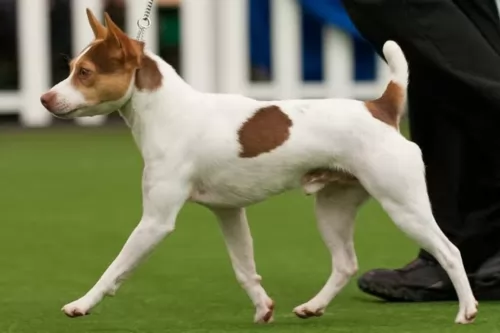 3.Adaptability – they need space even though they are small. They need a lot of exercise. They can adapt if they get another exercise. They can live in apartments and can play indoors as well as out.
3.Adaptability – they need space even though they are small. They need a lot of exercise. They can adapt if they get another exercise. They can live in apartments and can play indoors as well as out.
4.Learning ability – They are extremely intelligent, but they can be stubborn like all terriers.
 Your Lucas Terrier is such a robust, jaunty, feisty little dog and with excellent care from you he may be able to push two decades. With a healthy diet and exercise, you shouldn’t have to be at the vet often with this dog.
Your Lucas Terrier is such a robust, jaunty, feisty little dog and with excellent care from you he may be able to push two decades. With a healthy diet and exercise, you shouldn’t have to be at the vet often with this dog.
There are however, always common dog illnesses that even the most healthy dog can succumb to – ear infections, eye infections, bloat, cancer, hip dysplasia and others.
Skin problems may seem mild, but they can bring a whole lot of frustration and pain to your pet. You’ve got to be careful because sometimes skin problems may be indicative of other health issues. Probably the most common cause of skin problems in dogs are allergies from parasites like fleas.
Bacterial skin infections are caused when your pet is bitten by a flea for instance and then he scratches and licks, breaking the skin and bacteria gets in, infecting the wound.
Yeast infections for instance could be found in the ear canal and around the anus. Infections like this occur in damp areas and also when other conditions are right. Yeast infections cause itchy skin with hair loss.
Skin infections are not to be taken lightly. They can bring a whole lot of discomfort to your pet and you will most certainly need to get him to the vet.
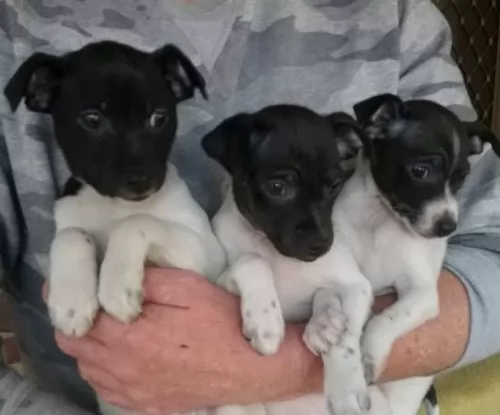 They are small in stature and because of their face they seem to have dental issues. The breed does not have a lot of health issues but deals with the same issues as many small terriers. Not all members of the breed are susceptible to these, but some are just like the Australian Terrier.
They are small in stature and because of their face they seem to have dental issues. The breed does not have a lot of health issues but deals with the same issues as many small terriers. Not all members of the breed are susceptible to these, but some are just like the Australian Terrier.
 This little dog isn’t a high energy dog but he will need to have a daily walk over and above the games you provide him with. Giving him a walk will be stimulating for him too as it gives him the chance to see different things and sniff around a bit.
This little dog isn’t a high energy dog but he will need to have a daily walk over and above the games you provide him with. Giving him a walk will be stimulating for him too as it gives him the chance to see different things and sniff around a bit.
The Lucas Terrier is looked upon as a low maintenance breed and a low shedder. You will need to brush him twice a week to keep the coat lustrous and to remove loose hair. Hand stripping is a method used for grooming his double coat but some people prefer to have him professionally clipped.
Feeding a dog should be a simple affair. All dog breeds appreciate a simple but nutritious diet as this avoids digestive problems.
The Lucas Terrier relies on quality food full of vitamins and minerals to ensure his health and longevity. True, commercially manufactured foods aren’t a wonderful choice, but there are some good ones and they do offer a tremendous amount of convenience.
However, you don’t just want to put a bowl of dry kibble in front of your pet night after night, so to add some tasty variety, boil chicken and brown rice or pasta along with some cooked or raw vegetables and add this to his dry kibble from time to time. It makes like a delicious kind of stew to add to the dry kibble.
You’ll see, your Lucas Terrier will have bright eyes, a wet nose and a wagging tail. He’ll thank you for sticking to a simple style of feeding that doesn’t come with unpleasant surprises to upset his stomach. Make sure he always has a bowl of fresh cool water constantly available.
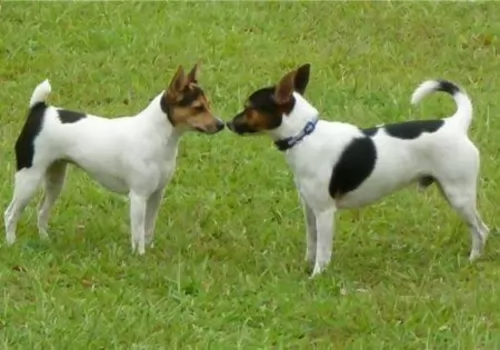 1.Feeding the puppy – Don’t overfeed but do feed high quality puppy food for small breeds and terriers.
1.Feeding the puppy – Don’t overfeed but do feed high quality puppy food for small breeds and terriers.
2.Feeding the adult – This is an active breed but don’t overfeed. Feed a high quality adult dog food for terriers or small breeds. Feed 2 times a day.
4. Games and Exercises – The breed has a high energy level and needs a lot of exercise. He is a terrier and loves to “go to ground”. Play activities that allow him to do that are best. He plays barn hunt, lure coursing and terrier specific competitions.